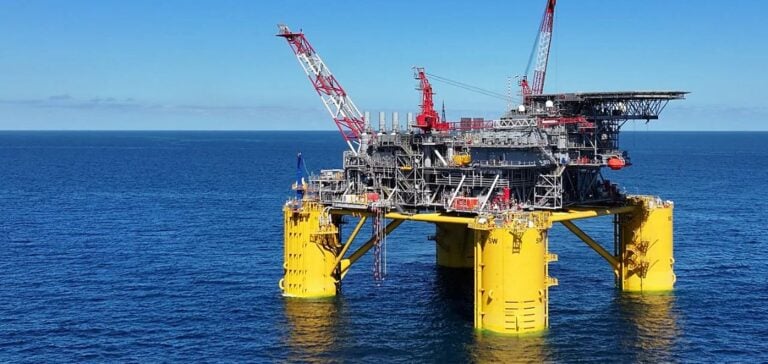The Whale platform, operated by Shell Offshore Inc. and 40% owned by Chevron U.S.A. Inc., has officially begun production in the Gulf of Mexico. With a capacity of 100,000 barrels of oil equivalent per day (boe/d), the project aligns with a strategy to optimize offshore production while introducing measures to reduce emissions.
An infrastructure tailored to current challenges
Whale is located in block Alaminos Canyon 773, at a depth of 2,600 meters and approximately 320 kilometers south of Houston. Largely modeled after the Vito platform, it replicates 99% of its hull design and 80% of its topside infrastructure, enabling cost reductions and faster production timelines.
The platform stands out with innovations such as the use of turbines and more efficient compression systems, reducing greenhouse gas (GHG) intensity by 30% compared to similar installations. These efforts are part of Shell’s commitment to improving the energy efficiency of its operations.
A strategic project in the Gulf of Mexico
With recoverable resources estimated at 480 million barrels of oil equivalent, Whale strengthens the offshore portfolio of Shell and Chevron in a key region for hydrocarbon production. Both companies emphasize the importance of this project in meeting current energy demand while striving to integrate technological solutions to limit environmental impacts.
Whale’s production began 7.5 years after its discovery in 2017, a timeline reduced by optimized engineering and construction processes, despite a one-year delay caused by the COVID-19 pandemic.






















